The short answer is, "absolutely". Yes, there are auctions you do not need a Dealer License to participate in. And yes, you can buy cars at below market prices and resell them for profit.
Sound enticing and maybe even fun? Well, while do-able, I don't want it to sound too easy. It's not. It's both challenging and risky.
Flipping Strategies
There are a number of different strategies. My own is to try to "cherry pick" auctions for the later-model and lower-mileage cars. There are others who prefer to go with older and cheaper vehicles. While this seems to work well for them, it just isn't our marketplace. It also takes more time and those doing it really have to be fairly expert with mechanical issues, which is not ideal for many people.
So, I'm going to write about the potential income possibilities only from my own auction objectives, bearing in mind that there are other car buying and selling strategies that work as well.
The concept of "flipping" cars is quite simple actually. What you want to do is buy a car at a price far enough below book values that you can sell it at an outstanding price and still make a decent profit. This is a true win/win for both the buyer and the seller, making such vehicles the quickest to sell.
One way to find vehicles that fit this profile is by calling and identifying desperate "by owner" sellers. But this takes time and strong negotiating skills. Also, these sellers are more likely to trade in their cars before accepting a deal below trade-in value.
Public car auctions are often a much better option. There are typically many cars to choose from and the prices paid can be difficult to beat. Although forget all that "cars for $100!" or "90% off retail!" marketing hype we see online.
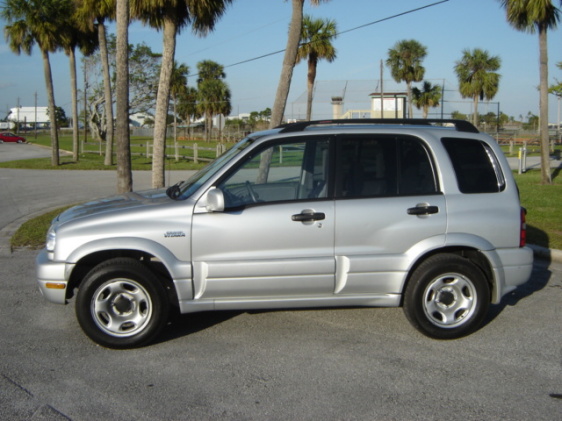
The Vehicles To Look For
There really isn't a precise formula for this. It's mostly a "common sense" thing, mixed in with a little knowledge. What I can say is that you'll know them when you see them as you preview the listings a few days before an auction. They kind of just jump out at you.
I'd suggest looking for mid-priced vehicles (generally $4,000 to $10,000, although there are exceptions to this as you will see in a moment) with high demand and a reputation for quality (perhaps something like a Toyota Corolla) with average or lower mileage.
I'd also suggest going after almost any vehicle that stands out because of "extremely" low mileage (driven less than 8,000 miles a year).
You should go already armed with the trade-in values (the wholesale value) for the cars you're interested in through sites such as Kelley Blue Book and NADAGuides.
There's also one that might be a bit more accurate because the inputs will include either your license plate or VIN# followed by many simple, but specific, yes/no questions. It really focuses in on the detail of the specific vehicle. You can get it at Edmund's Trade-In Quotes. And free, of course
Actually, I think it's a good idea to know the value of your asset whether you are in the market or not. It's just a good idea to know these things.
Then, target a buying price that's typically not more than 50% or so below its trade-in value to start, with a willingness to rise to 25% below wholesale only if there is strong bidding and you are confident about its condition. If you can't reach these goals, it's best to walk away and move on to the next one.
Successful bids at these price points usually mean it can be resold at an attractive price. This is a huge competitive advantage when it comes to reselling. That said, here's more on car auction risks.
Some Examples
The first thing to do is check the auction's prelistings. As an example, I see one that's coming up with about 150 vehicles. As I scan the list, I come across five 2000 Chevy Cavaliers. Now I really don't care about Cavaliers one way or the other, but the mileage on them is outstanding. Four of them have between 34,000 and 37,000 miles. And the fifth has 40,000. For cheap, 7-year-old cars, this will be a huge selling point.
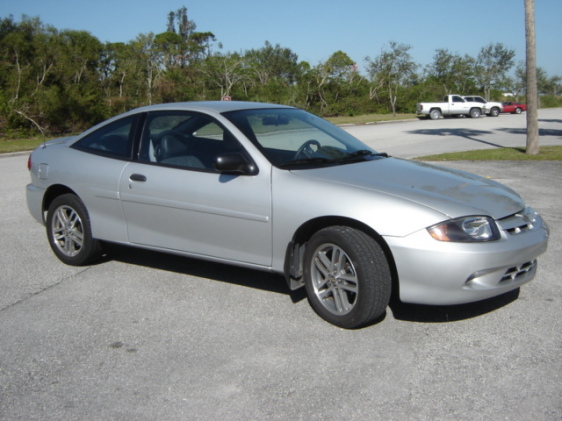
The listing also tells me that these are "government vehicles". Well, that explains the mileage and now I'm super interested. It's very likely that these were used by a local government office for employees when they needed to go out into the field, which wasn't often in this case.
The kicker is that government vehicles are usually very well maintained, so these are looking like prime examples of cars to buy cheaply that will sell fast.
The next step is to set a purchase price target. The trade-in prices for these Cavaliers in good condition are right around $2,200. My target price would therefore be from $1,100, lower if the bidding starts lower, to a max of $1,650, if there is active bidding. This is the 50% to 25% below trade-in value price range detailed above.
Related:
How To Get The Best Price For Your Trade-In
Easy Negotiation Tactic To Buy A New Car At The Lowest Price
Spot Wholesale Opportunities Right On Dealer Lots
Next I'll go back to the above car sites to see the retail prices for these in my area. I see they have an average sales price of around $3,500, but they have two or three times the mileage. This being the case, I can target a resale price of $3,400 and they will jump off the page at prospective car buyers. But if they don't sell in a week, I'll lower the price to $2,900 and they will likely be gone.
At these kinds of prices, a low-mileage vehicle like this will be irresistible to someone simply looking for cheap transportation, or buying a vehicle for a son or daughter to get them around college. And whether the gross profit is $1,500 or $2,000, let's not forget there are other expenses as well.
Other Expenses To Keep In Mind
Of course, your purchase price for the vehicle isn't the whole story. Unless you have a Dealer's licence, you'll have to pay your state's sales tax. Then there's an auction house charge that's usually in the $250 - $300 range. Also, there's a documentation fee in the $75 – $85 range. The out-the-door price can certainly add up.
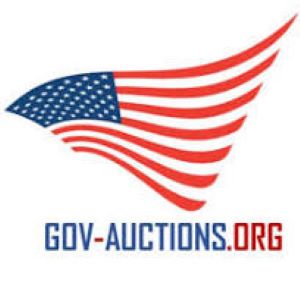
And then there's the costs of any necessary repairs, reconditioning and cleaning. So, you can see why it's so important to only purchase vehicles at a significant discount to trade-in value in order to make a profit. And then always leave a little room for the unexpected.
Okay, Another Example
This example will be quicker and without all the detail above since the process would be the same.
I go back to my listings and find another upcoming auction. I spot several excellent possibilities in the listings and then come across some real standouts that are actually shouting at me.
There's a couple of 2002 Pontiac Trans Ams. The mileage is on the higher side, in the 74,000 to 94,000 range for each of them. But this is a "muscle car" with lots of enthusiasts. 2002 was the last production year and buyers will travel from one state to another just to buy one.
Also very interesting is the fact that these are also listed as "government vehicles". It's very unlikely that these were used by a local government agency. They're just not the right type of vehicle.
Instead, my guess is it's much more likely that these were "seized" by the state government from a Dealer who went out of business still owing on sales tax. If I'm right about this, it's also very likely they were reconditioned by the original Dealer and are in good shape as well.
So, either of these Trans Ams would make an excellent resell candidate. I would then go through the same pricing process to determine my "no-more-than" purchase price and resale price.
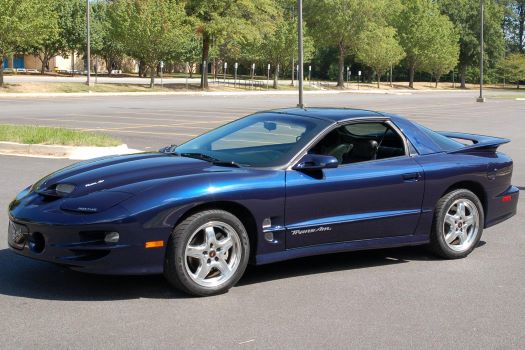
If the actual bidding goes higher than I want to pay, I will simply walk away. I'll stay unemotional and will only purchase when there's a tremendous price advantage built in from the get go. There's always other days and other auctions.
If I'm successful in my bidding, I then take the vehicle to a garage to be checked over. If the vehicle is in great shape, I'll still have the oil changed. Most need at least some minor things such as break pads, perhaps a new tire or two, a small mechanical fix, or whatever. I normally budget up to $500 for this, but it's usually less.
Again, I can't tell you exactly which make or model to look for. But I hope these examples help you identify a solid candidate when you see it.
Do You Need A Dealer's License?
This is a very important issue and will depend on where you are and how often you do this. Each state has its own laws as to how many you can sell annually before have to get a Dealer's license.
And a few, including Connecticut and Kentucky (and possible a couple others), don't allow any when sold for the the purpose of making a profit.
Here in Florida, it's 3. It's 5 in Ohio and 6 in New York, while in Vermont and Indiana it's 11. You can check your own state's buying and selling laws at DMV.org.
So, in most states it will be lawful for you to at least try this to see if it is a good fit. Then if things go well and you enjoy it, you can decide about taking the next step to get licensed.
Where Are The Public Auctions?
Yes, they can be difficult to find sometimes.
But I can point you in the right direction to get you started while you also search for others in your area.
Checkout SCA Auctions which has public auctions all over the country.
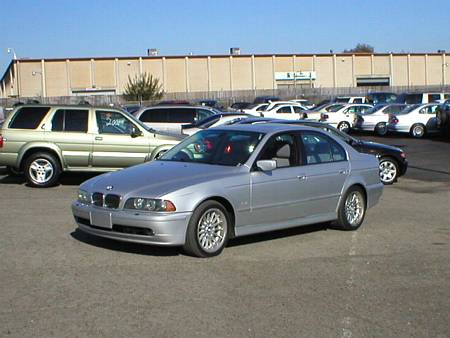
Also try SalvageSellers (they actually auction the full range of condition vehicles, good and bad, not just salvage) and IAA. These are primarily online auctions, but that's the way the industry is evolving.
Most of the online auctions are free to join and watch, but may have a fee to actually bid. In-person auctions are usually free to attend but this can vary. Also, not all of the vehicles can be bid on by anyone. Many can be restricted to "Dealer-Only".
I hope this has been helpful and best of luck if you pursue it.
Josh
 By Josh Rosenberg
By Josh Rosenberg